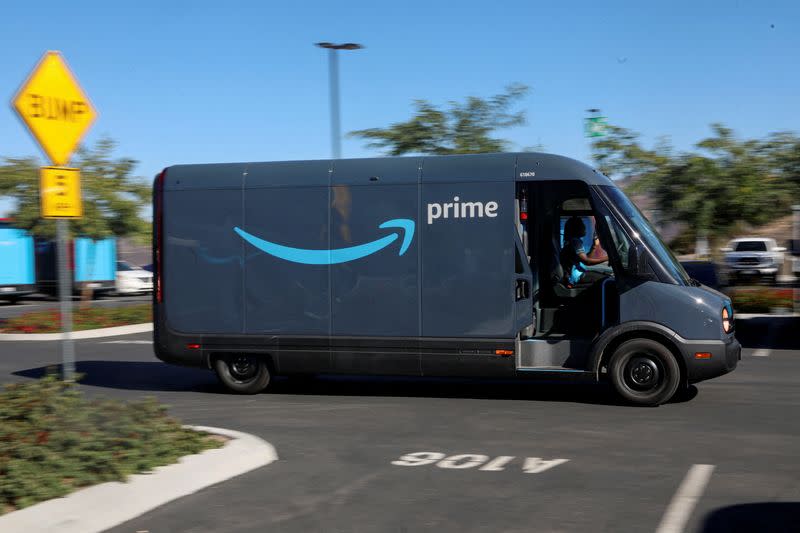Amazon rolls out first European Rivian vans in Germany
(Reuters) — E-commerce giant Amazon will deploy its first European vans from U.S. electric vehicle (EV) maker Rivian in Germany over the coming weeks as part of long-term plans to electrify its transportation network, it said on Tuesday.
Amazon said 300 electric vans will hit the roads in the Munich, Berlin, and Dusseldorf regions as part of a 100,000-vehicle order it made in 2019 from Rivian, in which it is the largest shareholder.
Rivian and Amazon will use a specially-designed shorter, thinner van than its U.S. counterpart to better fit the streets in Europe's cities.

Amazon has committed more than 1 billion euros ($1.1 billion) to electrifying its fleet in Europe, with 400 million euros of that allocated to Germany.
The online retailer began rolling out Rivian vans in the United States last year and now has more than 3,000 vans delivering packages in over 500 U.S. cities and regions. It aims to have 100,000 Rivian vehicles in its fleet globally by 2030.
(Reporting By Nick Carey; Editing by Jan Harvey)

 Yahoo Finance
Yahoo Finance 